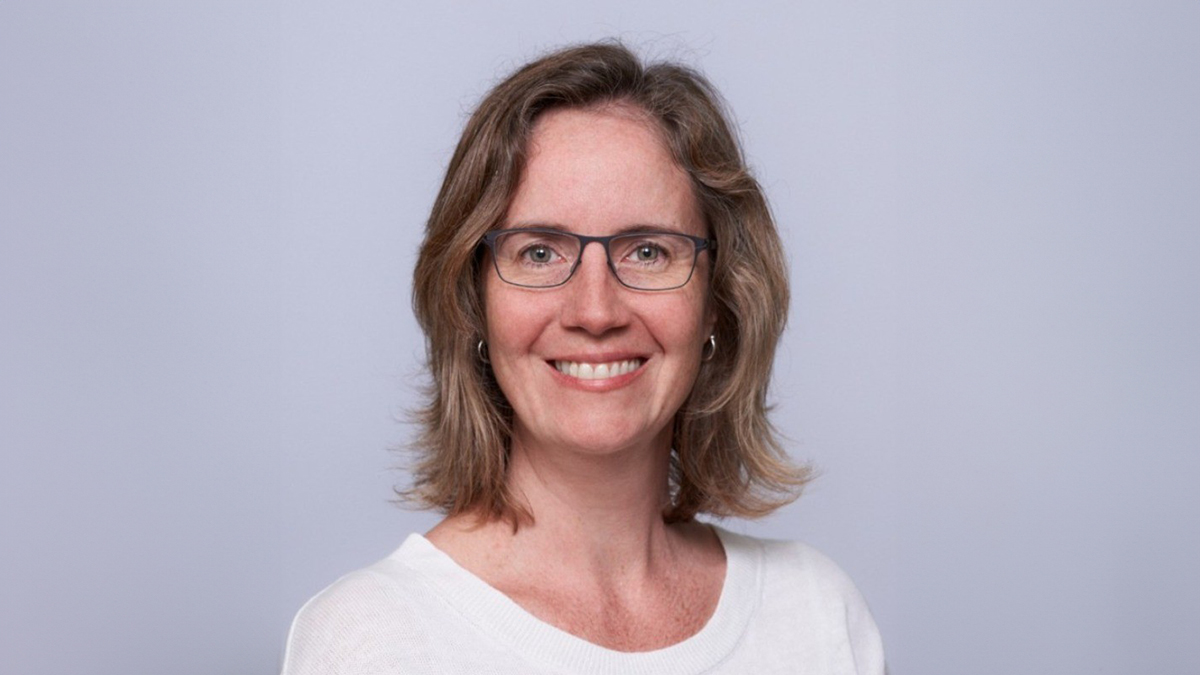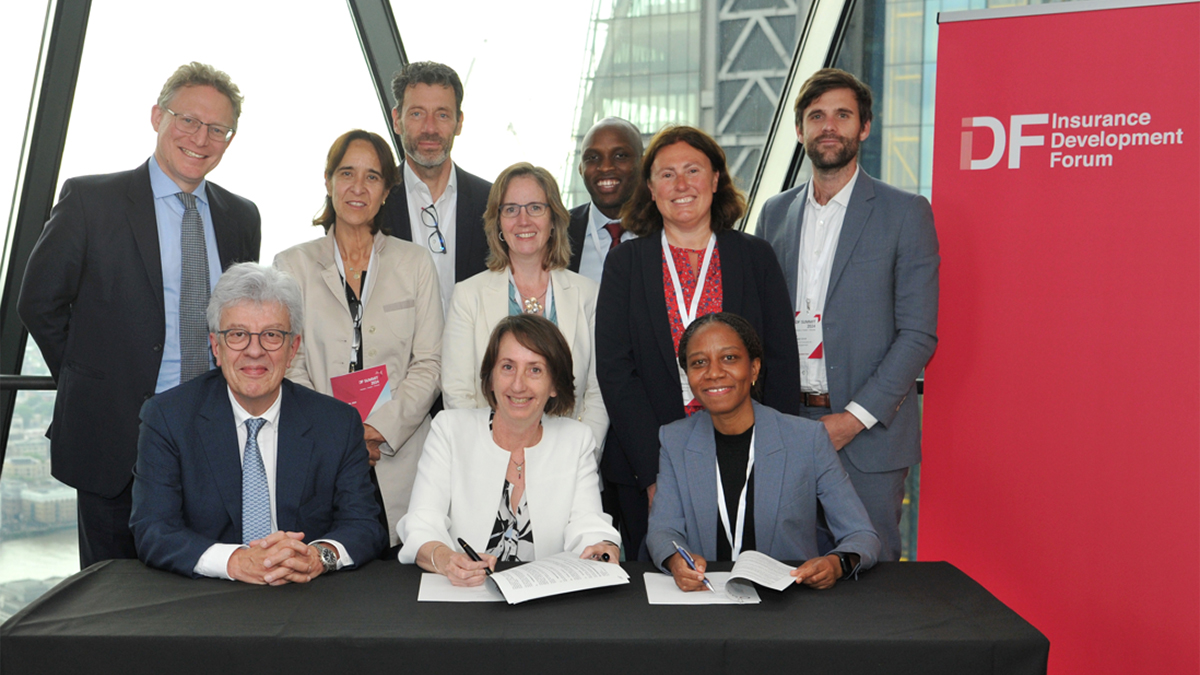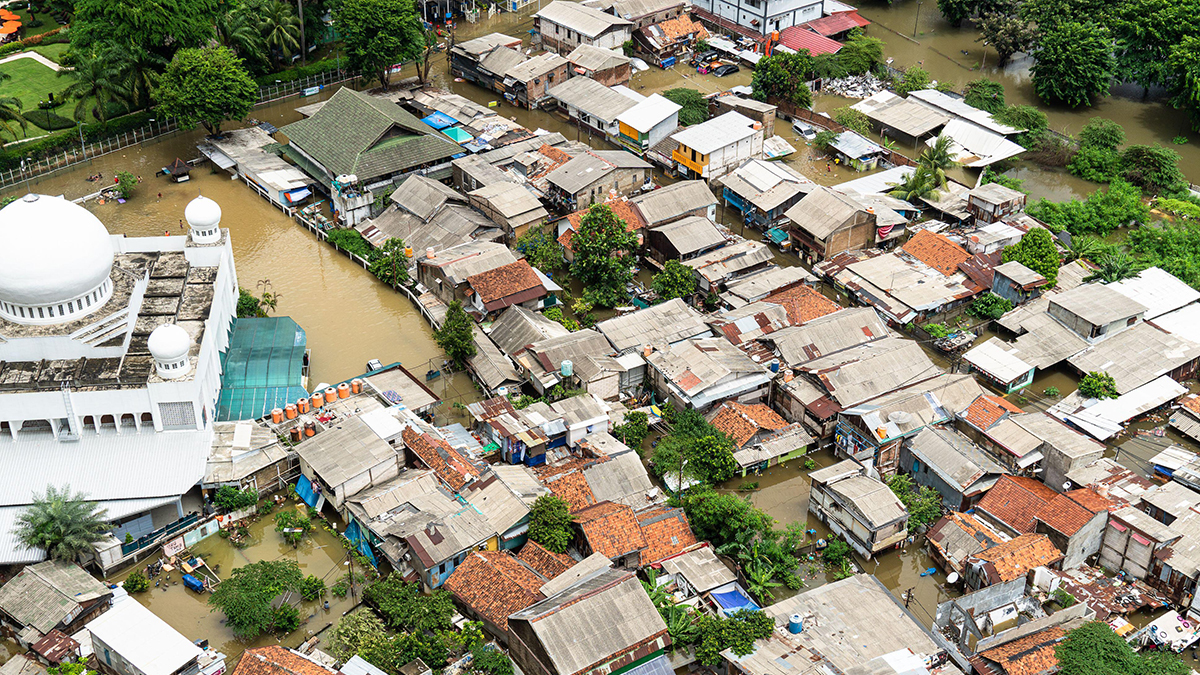Insurers and investors are natural allies in climate risk finance
‘The word ‘insurance’ should appear again and again in Cop communiqués,’ Insurance Development Forum and Zurich Insurance chair, Michel Liès, says
Zurich Insurance’s Michel Liès and Saoirse Jones outline why World Bank clients are paying closer attention to insurers
The leadership of the World Bank is fostering closer collaboration between the insurance and finance sectors in tackling climate risk, according to Zurich Insurance’s Michel Liès and Saoirse Jones.
Liès is chair of both Zurich Insurance Group and the Insurance Development Forum (IDF) and Jones is Zurich’s head of IDF engagement. They spoke to Insurance Day following the IDF’s annual summit, which was preceded by the launch of a knowledge partnership with the World Bank’s Global Shield Financing Facility.
The IDF summit and Knowledge Day launch were both closed to the media to enable candid dialogue with government representatives.
The Knowledge Day was hosted by Swiss Re at its London office and industry representatives from across the IDF membership jointly developed the programme for government representatives. The companies involved in this include Axa, Guy Carpenter, RenaissanceRe, Zurich Insurance, Gallagher, Swiss Re and Hiscox. As well as having a tour of Lloyd’s, the delegates also joined the IDF summit.
The summit convenes the IDF’s partners and stakeholders focused on building climate resilience in vulnerable countries. They include the World Bank and the UN Development Programme (UNDP), as well as re/insurers, insurance regulators, brokers, international development organisations and research institutions.
“What was really different this year, thanks to our partnership with the World Bank, was we also had more than 35 government representatives from 21 countries,” Jones says. “It was a really great opportunity to showcase, through practical examples, what the IDF is doing with risk modelling and country programmes, but also to hear from governments about the challenges they’re faced with and the opportunities they’re looking for.”
 Michel Liès, Zurich Insurance Goup
Zurich
Michel Liès, Zurich Insurance Goup
Zurich
Dialogue at the IDF-World Bank Knowledge Day and the IDF summit focused on “prevent, protect, provoke”, which encourages public-private partnerships to support better risk management and address the insurability – and therefore the investability – of national assets against the ravages of climate change.
The need to “provoke”, Jones says, was best expressed at the summit by the prime minister of Barbados, Mia Amor Mottley, who told delegates: “Closing the protection gap, maintaining the insurability of vulnerable groups and building back better after a disaster are all critical to avoiding a resilience tipping point.”
“If things are insurable then they start to be investable. And when they start to be investable then they start to be visible to the people putting the money on the table”
Michel Liès
Zurich Insurance Group
Being provocative does not come naturally to the “discreet” insurance community, Liès admits, but its potential role in bolstering investment in developing countries was mooted as long as a decade ago at the World Economic Forum’s annual meeting in Davos.
Under its new president, Ajay Banga, and with Hiroshi Matano, executive vice-president of the Multilateral Investment Guarantee Agency and co-chair of the IDF’s steering committee, the World Bank has increased its engagement with the IDF. As part of this, the bank organised a week-long visit to London that included giving the IDF access to its clients for a “knowledge exchange” before IDF’s annual summit, Liès says.
Banga joined the World Bank in July 2023 from General Atlantic, where he was vice-chairman and also an adviser to its climate-focused fund, BeyondNetZero. Previously, he was president and chief executive of Mastercard, where he launched the Center for Inclusive Growth, which advances equitable and sustainable economic growth and financial inclusion around the world.
The thrust of the IDF-World Bank Knowledge Day was to urge finance ministers to embrace insurance expertise. “We don’t pretend insurance is a solution to everything, but we are massively frustrated that very often insurance is not seen as part of a finance ministry’s toolkit,” Liès says. “And I must say, we made good progress during the Knowledge Day, which was about connecting the people taking the financial decisions of a country with the insurance industry. That made this year’s IDF summit very special.”
Despite the fact the World Bank is an established partner for the IDF, insurance is not always “top of mind” among government and private financiers. Liès highlights the missed opportunity following World War Two to create a global organisation for insurance, in the way there had been for culture, health and banking. “It’s not that insurance needs a world organisation centrally, but it would have brought the concept of insurance and risk management to all those with financial responsibility today,” he adds.
State chief risk officer
What insurers do need, however, is for every government to follow their lead in creating the role of chief risk officer (CRO).
Liès says: “The insurance industry invented that role 40 years ago, but having a sparring partner at the government level who can talk about risk is missing from the discussions we have. In insurance and reinsurance, we meet with both the chief financial officer and the CRO, but when we talk with finance ministers we often have to explain insurance. Once they gain the conviction of the added value insurance can bring, there is a change of government and we have to start all over again.”
Asked whether the IDF made that point clear to the World Bank clients it spoke with, Liès admits the insurance industry “could be more provocative with its convictions”. He continues: “It’s not only about expressing, but also repeating, repeating, repeating until it actually happens.”
Jones says the concept of a state-level CRO could be the next step from the role of city-level chief heat officer some countries have already adopted. She takes heart from how delegates at the Knowledge Day wanted to discuss risk in a “holistic manner”. This is crucial, she continues, in accessing data across different ministries. “They’re struggling to get a comprehensive understanding because they lack holistic access since every ministry has part of the data set but not everything. So yes, to Michel’s point, maybe we could be more provocative and call for the CRO concept more broadly.”
To harness the added value of insurance, governments first need to understand the importance of modelling risk. It might seem a “bit actuarial, mathematical and boring”, Liès says, but without models “it will be difficult to convince anyone to invest or cash a premium”.
Many government are already keen to learn from the IDF’s on-the-ground experience, Liès continues. For example, the IDF has a joint venture in several countries with UNDP, which is an “excellent opportunity” for it to learn about solutions that could be replicated in other areas where they have a presence. It is important, he adds, to make public and private institutions aware of the “catalogue of solutions” the IDF has created. This catalogue takes the form of “implementation updates” the IDF secretary-general, Ekhosuehi Iyahen, publishes.
“It would be ridiculous to reinvent the wheel in each and every country and so they want to understand the ‘why’ of some of the global initiatives we have, but also to have a clear overview of what is happening in an efficient manner,” Liès says.
Challenge for humanity
The “philosophical” debate at UN climate talks about achieving a balance between the Global North and Global South is beyond the IDF’s remit because the organisation stands outside politics, he adds, but it is important to remind politicians insurance can help their endeavour to solve this “challenge for humanity”.
Part of the uniqueness of the IDF, which has 42 projects in 30 different countries, is being “implementation-focused”, Jones says. Those projects are “across the risk modelling space, the anticipatory action space and the risk reduction space”, she adds. They also include the Tripartite Programme between the IDF, UNDP and Germany’s ministry for economic co-operation and development, which Jones says has facilitated public-private sector conversations and the design of solutions.
“It would be fantastic to expand that programme because it increases understanding of the risks countries are facing and that insurance is one of the mechanisms that can help build resilience,” she adds.
The IDF has recently launched an initiative with the French Development Agency Group, called the Integrated Disaster Risk Management Alliance (Idrima). Their partnership aims to strengthen the long-term resilience of sovereigns, sub-sovereigns and public utilities in the Global South to the impacts of climate disasters through comprehensive financial solutions, combining the expertise of development finance institutions, public development banks and insurers. A good outcome of Idrima, Jones says, will be to attract finance institutions to discussions about climate resilience. “This isn’t only for global insurance companies, but also for developing local insurance markets as well, to build resiliency and financial stability in-country,” she says.
 Saoirse Jones, Zurich Insurance Group
Saoirse Jones, Zurich Insurance Group
Liès concurs, adding he measures the IDF’s success by the number of local initiatives it achieves to enable greater insurance penetration in countries where that is currently very low. “If things are insurable then they start to be investable. And when they start to be investable then they start to be visible to the people putting the money on the table,” he says. “Therefore, penetration of insurance is not only a pleasure for the insurance industry, but also the first step towards making a country attractive to potential investors in their projects.”
Liès refers to the Global Resilience Index Initiative (GRII), which was launched at Cop26 by the UN’s special envoy for climate action and finance, Mark Carney. The GRII provides critical data and metrics to save lives, mobilise finance for adaptation and incentivise resilient development. “The GRII could, in my view, be a good complement to the financial rating of a country,” Liès says, “by giving a time value to the financial snapshot.”
“It would be fantastic to expand [the Tripartite Programme] because it increases understanding of the risks countries are facing and that insurance is one of the mechanisms that can help build resilience”
Saoirse Jones
Zurich Insurance Group
Another wish, Liès adds, is for the word “insurance” to appear more frequently than it has to date in the final communiqué of the next Cop.
Climate talks need to be “less dogmatic and religious” and based only on facts, he stresses. “If we’re talking about conviction, that’s where the insurance industry can play a very special role, because we have one foot in financial services and the other in paying claims.
“After governments, the insurance industry pays the biggest part of the claims resulting from climate risk. We would like to see our role intensified in these discussions and the best way to make that happen is by increasing the number of experiences we have that show the numbers of communities whose lives have been improved thanks to what we’ve done.”
By the time of IDF’s next annual summit, Liès hopes countries will be “coming naturally” to the insurance sector in their efforts to attract investors. “When they need money, they call a bank and where they have risk, they should call an insurer.”
Liès concludes: “It’s easier for a politician to collect the money once they can show scenes of a disaster on TV, but to prevent a disaster is a much more mature approach if it values the contribution insurance can make.”



